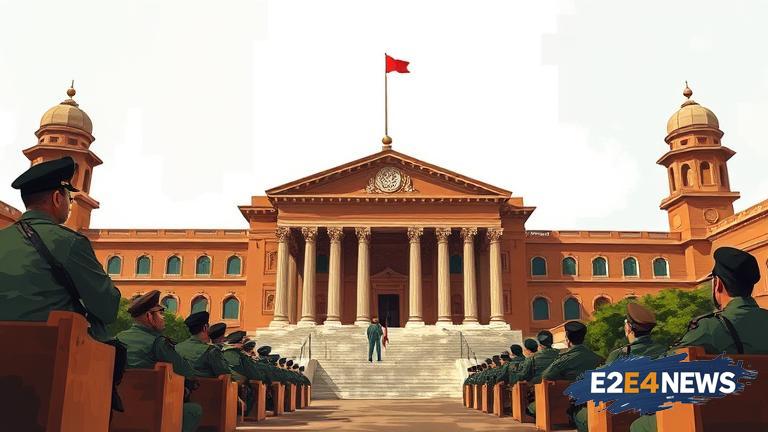In a landmark decision, it has been established that individuals convicted by military courts in Pakistan have the right to file petitions in civilian courts, challenging the verdicts handed down by the military judicial system. This development is seen as a crucial step towards ensuring that the fundamental rights of all individuals, including those convicted by military courts, are protected under the country’s constitution. The decision underscores the importance of checks and balances within the judicial system, ensuring that no single entity has absolute authority over the legal fate of individuals. Military courts, which were initially established to try civilians for specific offenses related to terrorism and national security, have been a subject of controversy due to concerns over due process and the rights of the accused. Critics have argued that these courts often lack transparency and may not provide the same level of legal protections as civilian courts. The ability for individuals to challenge military court convictions in civilian courts introduces an additional layer of oversight, potentially leading to a more equitable application of justice. This move is also expected to enhance public trust in the judicial system, as it reaffirms the principle that all individuals are entitled to a fair trial, regardless of the court that initially hears their case. Furthermore, the decision may have implications for the future operation of military courts, potentially leading to reforms that align their procedures more closely with those of civilian courts. Human rights organizations and legal experts have welcomed the development, seeing it as a step forward in the protection of human rights and the rule of law in Pakistan. However, some have also cautioned that the implementation of this right may face practical challenges, including the potential for lengthy legal delays and the need for additional resources to handle the anticipated increase in petitions. Despite these challenges, the decision is widely viewed as a positive step towards strengthening the judicial system and ensuring that it serves the principles of justice and fairness. The government and judicial authorities are expected to work together to establish clear guidelines and procedures for filing and hearing these petitions, ensuring that the process is efficient and effective. In the broader context, this development reflects ongoing efforts in Pakistan to balance national security concerns with the need to protect individual rights and ensure that the legal system is fair and accessible to all. As the country continues to navigate complex security challenges, the importance of a robust and equitable judicial system cannot be overstated. The decision also highlights the evolving nature of Pakistan’s legal landscape, as the country seeks to address both internal and external pressures to reform its judicial and legal frameworks. Ultimately, the ability of individuals to challenge military court convictions in civilian courts is a significant advancement in the pursuit of justice and human rights in Pakistan.
